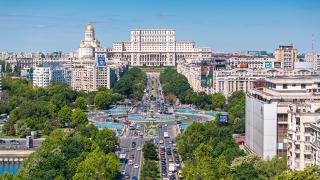Cement consumption in the Czech Republic remained resilient during the pandemic. However, economic headwinds and a slowdown in construction activity are likely to impact demand in the near-term. For local cement producers, decarbonisation plans are high on the agenda as the sector looks to implement a number of changes in line with industry's green goals. By Jan Gemrich, Czech Cement Association, Czech Republic.
The Czech Republic is a central European country with an open trade economy and a long industrial history dating back to the 18th and 19th centuries, the traditions of which continue to this day. This has created successful conditions for broad-based national economic wealth, but at the same time pose a challenge given the current trends towards decarbonisation and the deglobalisation of world trade.
The Czech economy weakened only slightly following the COVID-19 pandemic but was hit by several shocks in 2022. Due to its proximity, the Russia-Ukraine war has weighed on economic growth in the Czech Republic and amplified inflationary pressures, particularly in terms of food, real estate and energy prices. In addition, by the end of 2022 the rate of inflation in the Czech Republic had reached its highest level since the 1990s, leading the central bank to gradually increase interest rates.
